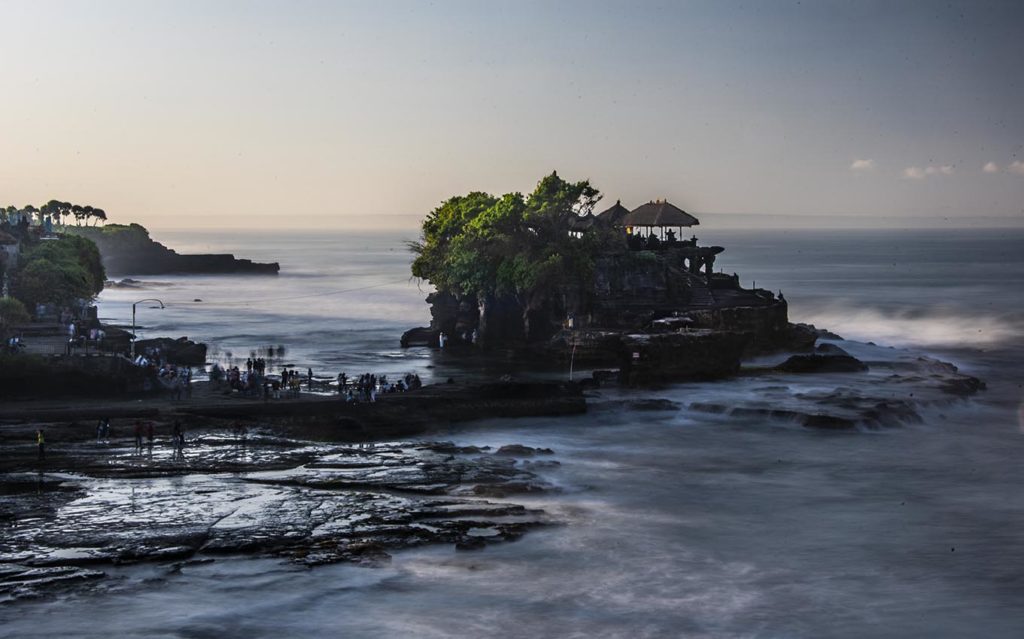Bali Style: confusing reflections
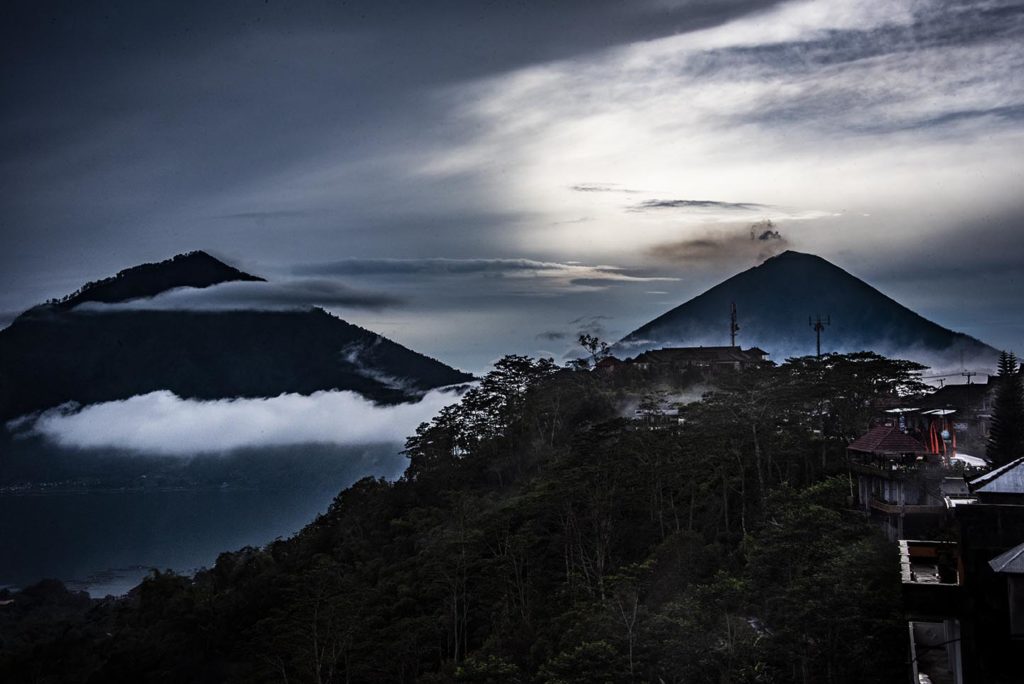
In Bali the worldview is a trifle different than in the west. It’s based on the island’s geography and Hindu beliefs and leads to some interesting contradictions that I’m struggling to deal with.
The Balinese recognize the compass points of north, south, east and west, but they also have a unique take to their geography, namely that all good things come from the mountainous heights, while evil/badness comes from the ocean. I don’t quite understand this belief given they enjoy the bountiful seafood harvest of the coast, not to mention the planeloads of tourists who come to bask in the sand and sun. As for the mountains, at this moment Mount Agung seems perilously close to a major eruption—so much so that they’ve evacuated a number of villages from the mountain’s slopes. Agung even burped just two days ago!
I’ve also been struck by the environmental attitudes of the people on the island. On the one hand there is this genuine appreciation for the beautiful island they have inherited and the island has initiated efforts like the recycling of plastics (they ship them to Indonesia for recycling.) In the city of Ubud they’ve even been trying to eradicate single use plastic bags. On the other hand, the rivers near even the most holy of temples are filled with refuse.
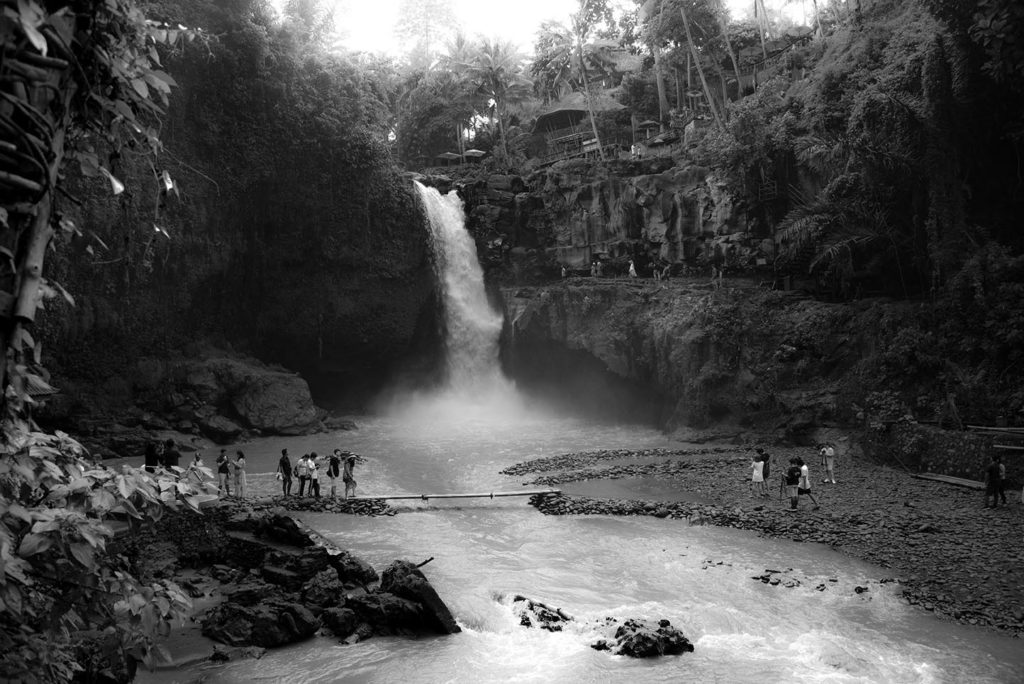
We talked about this this morning and wondered whether it was a result of Maslow’s hierarchy of needs. After all, in Bali job sites advertise jobs earning an average of 400,000 rupiah a month—that’s less than $40 US. When your focus is on earning enough to feed and educate your children (they have to pay for schooling here, not to mention for all medical care), maybe environmental issues aren’t at the top of your awareness.
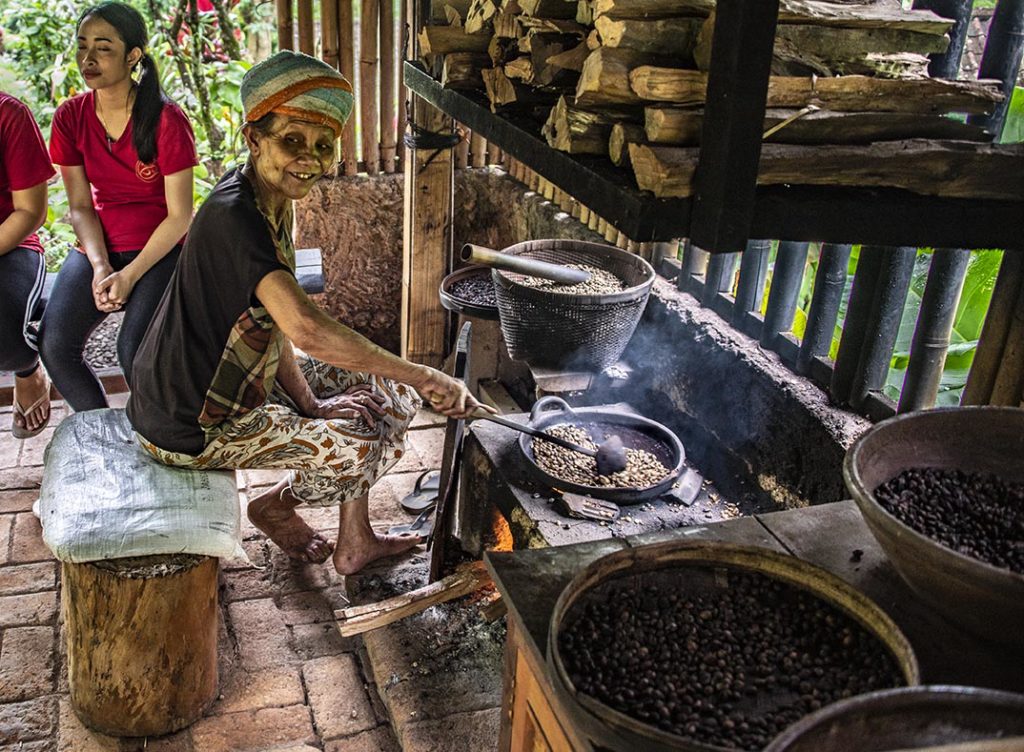
There’s also the question of animal care. We’ve seen a number of philanthropic organizations for dogs and cats and frankly the cats and dogs we’ve seen have seemed healthy overall—probably due to those efforts and those of animal owners. I’ve been told that the Hindu beliefs recognize the souls in all plants and animals, and that the belief is that animals killed for food/sacrifice are blessed because they gave up their lives and will therefore be born human in their next life. All nice to hear.
And yet—the other day a small Bali Komodo lizard about 18 inches long surprised me by the pool—or I surprised it. The poor thing ended up in the pool and when I called someone to help it out, their response was to try to kill it. I don’t understand why—I mean I understand that in the old days the large ones (think as large as your leg) could steal and eat village chickens, but this was a small creature.
And then there’s the questions about tourists. On the one hand, Bali is a beautiful island that has benefited from its tropical mystique and the rich foreign dollars that have flowed into the country. My question is what are they losing in return? The rice paddies are being turned under to build tourist villas and more and more people are leaving the villages for places like Ubud. Talking to people it’s interesting that many are openly discussing how to retain the ‘Balineseness’ of their island in the face of pressures from many sources, like the fact that Indonesian has been the language of choice of higher learning, and the challenge of marketing their culture yet retaining the culture’s authenticity.
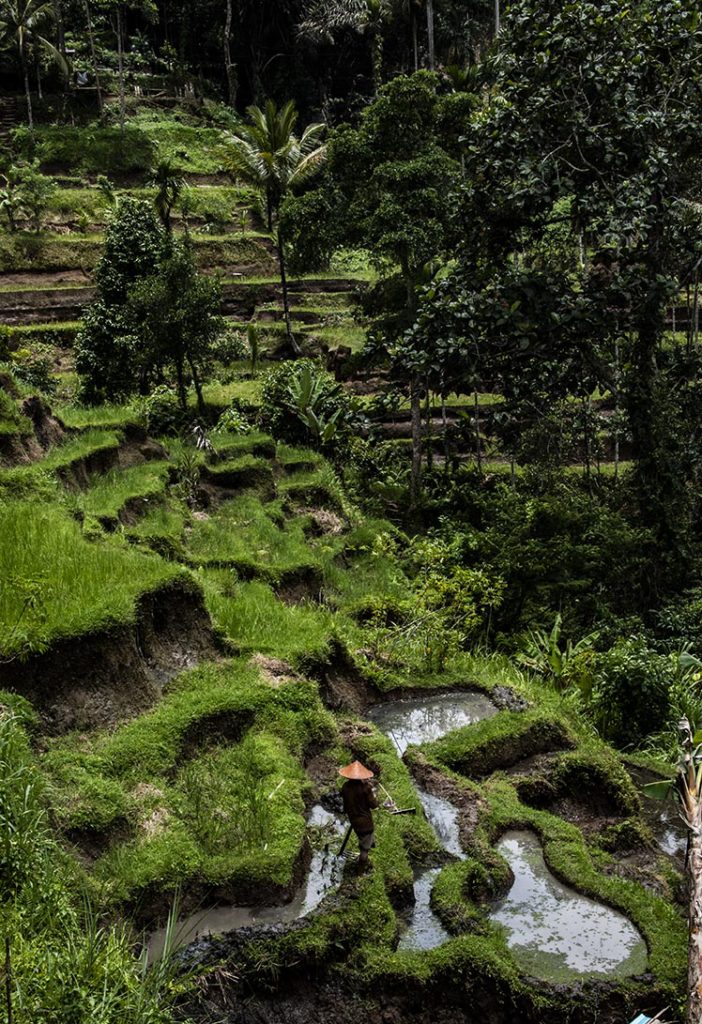
One of the things the Balinese have done well is to foster the retention of their art forms. Dance schools thrive and many girls and boys study dance at least for a while. Villages exist that focus on painting, silver smithing, stone carving, gamelan making, and woodcarving, amongst others.

And yet, again, to my western eye there is a dark side. When I ask staff of one of the teak shops or carving studios where the teak comes from, they tell me not from Bali. No, they want to save their jungles. Instead, it comes from places like Sumatra or Borneo—places I know are suffering from deforestation and environmental degradation, impacting endangered species like elephants and orangutans.
So, I’m leaving Bali with mixed feelings. I love the people and so much about the culture and how the place where I’m staying has made me feel like part of the family, but I’m clearly a foreigner with foreign questions, concerns and definitely a different worldview. Visitors who have been coming to Bali over the years say the place has changed in so many ways, from the changes brought by Indonesia’s attempt at democracy, to the growth in the tourist industry and the increase in traffic congestion.
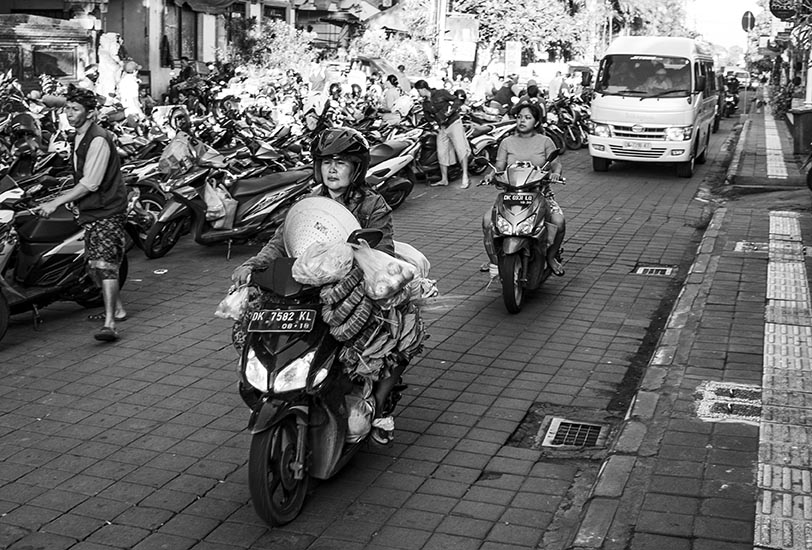
If I return (and the sadness I feel at leaving suggests that I might) it will be interesting to see how the Balinese solve these dilemmas.
Inevitably, whatever is done, will be in a unique Balinese style.
